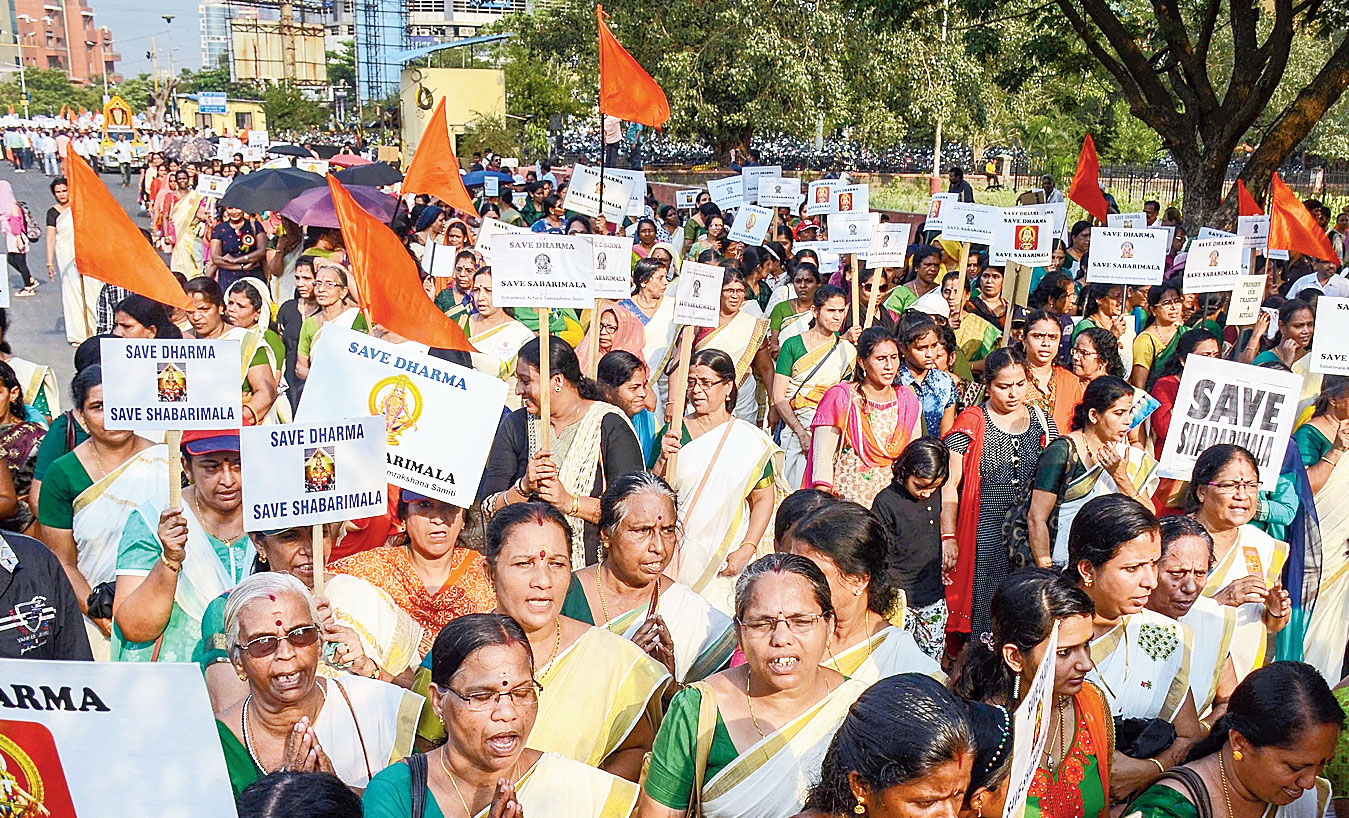A group of Malayalam writers has urged those who believe in democracy and gender justice to oppose the protests against the lifting of the age bar on women at the Sabarimala temple.
“These agitations are directly opposed to the Constitution, which long ago ensured gender justice,” said a statement signed by more than 30 writers including M.G.S. Narayanan, Zakariya, K. Venu, B. Rajeev and Sarah Joseph.
“All over the world traditionalists always protested such changes by arguing that the government must not intervene in religious matters.”
The apex court recently declared as illegal the centuries-old ban on women in the “menstrual age” (10 to 50 years) entering the Sabarimala shrine, prompting the state government to say it would facilitate the judgment’s implementation.
But many devotees and orthodox Hindu groups have moved review petitions and are protesting the state government’s stand.
The writers said it had been no different in the past when reformists had challenged practices such as Sati, untouchability, denial of education on the basis of caste, and the prohibitions against widows remarrying, women wearing blouses or Dalits using public paths.
“If such practices were allowed to continue, India wouldn’t have been on the path to becoming a modern nation,” the writers said.
“About eight decades ago, it was Kerala that first allowed temple entry to all castes (following the 1924 Vaikkom Satyagraha). The organisations that led that agitation are now shamelessly in the forefront of this protest.”
The allusion seemed to be to the Nair Service Society, which is leading the Sabarimala protests.
“This crucial judgment is one that would speed up (the fight against) injustice and gender inequality in religion and worship,” the writers said.
They added that vested interests were using the judgment to divide society and whip up passions with an eye on electoral gain.
The writers urged the protection of women’s democratic rights in all spheres. “The male-dominated priesthood has denied women their rights,” they said.
“It’s ridiculous that the BJP, which is trying to prevent half the population (women) from entering the temple, still believes it enjoys a monopoly over the Hindu religion.”
The writers slammed the Congress for protesting against the implementation of the court order. “It is social injustice when leaders of secular democratic parties support fights that would take our state backward.”
Sarah Joseph later termed the verdict “progressive” and expressed disappointment at the protests against it. “The Sangh parivar is using this as a political tool for electoral gain,” she told The Telegraph.
“It is a court verdict that needs to be respected. Instead, people are openly challenging something that would go a long way in helping the cause of gender justice.”
She referred to those who are asking whether all Christian women dare enter churches during their periods.
“Superstitions based on menstruation have crept into (the minds of) people from all religions. That’s why it’s time for reforms,” she said.










